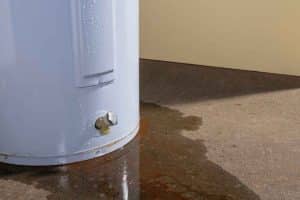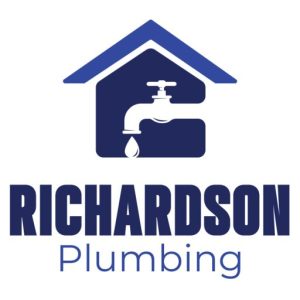 Experiencing a leak from your water heater can be a distressing situation. Whether it’s a minor drip or a significant flow of water, addressing this issue promptly is crucial to prevent further damage to your home. In this comprehensive guide, we will walk you through the necessary steps to take when you discover a leaking water heater, helping you identify the cause and determine whether a repair or replacement is needed.
Experiencing a leak from your water heater can be a distressing situation. Whether it’s a minor drip or a significant flow of water, addressing this issue promptly is crucial to prevent further damage to your home. In this comprehensive guide, we will walk you through the necessary steps to take when you discover a leaking water heater, helping you identify the cause and determine whether a repair or replacement is needed.
Understanding the Risks of a Leaking Water Heater
A leaking water heater can lead to a multitude of problems, including:
- Property Damage: Water can seep into walls, floors, and foundations, leading to mold growth and structural damage.
- Increased Utility Bills: A leaking unit can cause your energy costs to rise as the heater works harder to maintain temperature.
- Safety Hazards: Water leaks can create electrical hazards, especially if they come into contact with wiring or outlets.
Recognizing these risks underscores the importance of addressing a leak as soon as it’s detected.
Identifying the Source of the Leak
Common Causes of Water Heater Leaks
Before you can address the issue, it’s essential to pinpoint the source of the leak. Here are some common culprits:
-
- Temperature and Pressure Relief Valve (T&P Valve): This valve releases excess pressure from the tank. If it malfunctions, it may leak.
- Cold Water Supply Valve: Located at the top of the heater, this valve can become loose or corroded over time.
- Hot Water Outlet: Similar to the cold supply valve, this can also be a source of leaks due to wear and tear.
- Drain Valve: Used for maintenance, this valve can loosen or corrode, causing leaks at the bottom of the tank.
- Sediment Buildup: Over time, minerals can accumulate at the bottom of the tank, leading to corrosion and leaks.
Conducting a Thorough Inspection
To accurately identify the source of the leak, inspect both the top and bottom of the water heater. Look for:
-
- Puddles of water around the unit
- Dampness on nearby walls or floors
- Visible drips from valves or fittings
Understanding where the leak is originating will help you take the next steps effectively.
Immediate Actions to Take
Turn Off the Water Supply
The first step in managing a leak is to stop the flow of water. Locate the cold water shut-off valve, usually found at the top of the heater, and turn it clockwise until it’s fully closed. If you cannot locate this valve or if it’s also leaking, you may need to shut off the main water supply for your home.
Cut Off the Power Supply
If your water heater is electric, turn off the power at the circuit breaker. For gas units, locate the gas shut-off valve and turn it off. This step is crucial to prevent any electrical hazards or further complications.
Drain the Tank
Once the water and power supplies are off, it’s time to drain the tank:
-
- Attach a garden hose to the drain valve at the bottom of the heater.
- Run the hose to a safe drainage area, such as a floor drain or outside.
- Open the drain valve and allow the water to flow out until the tank is empty.
This process may take some time, so be patient.
Assessing the Damage
Evaluate the Severity of the Leak
After draining the tank, take a closer look at the components to determine the severity of the damage. Ask yourself:
-
- Is the leak coming from a minor fitting that can be easily replaced?
- Is the tank itself corroded or cracked, indicating a need for replacement?
Understanding the severity of the issue will guide your next steps.
Repair or Replace?
If the leak is minor and localized, you may be able to repair it yourself or with the help of a professional. However, if the tank is old (typically over 10 years) or if there are multiple leaks, replacement may be the more cost-effective option in the long run.
DIY Repairs vs. Professional Help
When to Attempt DIY Repairs
If you feel comfortable with basic plumbing tasks, you might be able to tackle minor repairs, such as:
-
- Tightening loose fittings
- Replacing a faulty valve
- Sealing small leaks with appropriate plumbing tape or sealant
When to Call a Professional
For more significant issues, such as a leaking tank or complex plumbing configurations, it’s best to consult a licensed plumber. They have the expertise and tools needed to diagnose and repair the issue safely.
Preventing Future Leaks
Regular Maintenance Checks
To avoid future leaks, schedule annual maintenance for your water heater. A professional can inspect the unit for signs of wear, flush sediment buildup, and ensure all components are functioning correctly.
Monitor Water Pressure
High water pressure can stress your water heater and lead to leaks. Consider installing a pressure-reducing valve if your home’s water pressure exceeds the manufacturer’s recommended levels.
Replace the Anode Rod
The anode rod attracts corrosive elements in the water, protecting the tank from rust. Regularly checking and replacing this rod can extend the life of your water heater and prevent leaks.
Understanding the Costs Involved
Repair Costs
The cost of repairs will depend on the severity of the issue and whether you choose to hire a professional or tackle it yourself. Minor repairs may range from $50 to $200, while more extensive repairs can cost significantly more.
Replacement Costs
If your water heater needs replacement, expect to pay between $800 and $3,000, depending on the type and model you choose. Tankless water heaters, while more expensive upfront, can save money in energy costs over time.
Choosing the Right Replacement
Types of Water Heaters
When replacing your water heater, consider the following options:
-
- Conventional Tank Water Heaters: These are the most common and are available in various sizes.
- Tankless Water Heaters: These provide hot water on demand and can save space and energy.
- Heat Pump Water Heaters: These are energy-efficient and can significantly reduce utility bills.
Energy Efficiency Ratings
Look for units with high energy efficiency ratings (EF ratings) to save on energy costs. Energy-efficient models may have a higher upfront cost but will pay off in the long run.
We Install and Repair Water Heaters
When it comes to water heater installation and repair services, you want a reliable and experienced team to handle your needs. Richardson Plumbing offers 24-hour water heater repair, installation, and replacement services for both electric and gas water heaters.
> Learn More
Dealing with a leaking water heater can be a daunting task, but understanding the steps to take can alleviate some of the stress. From identifying the source of the leak to determining whether to repair or replace the unit, taking prompt action is essential. Regular maintenance and monitoring can help prevent future leaks and ensure your water heater operates efficiently.
Contact us (859-371-2239) for a free consultation!
—
 About Richardson Plumbing
About Richardson Plumbing
Richardson Plumbing offers a wide range of residential and commercial plumbing services using seasoned professionals and the highest quality parts and equipment available. We continually strive to exceed expectations by ensuring that each client receives prompt, outstanding service from our entire organization. Richardson Plumbing provides free consultations that explain all of your available options, so you can choose the scope of work that’s right for your home or business. When you have problems that just can’t wait until tomorrow, we can provide 24 hour emergency services.
> Learn More
